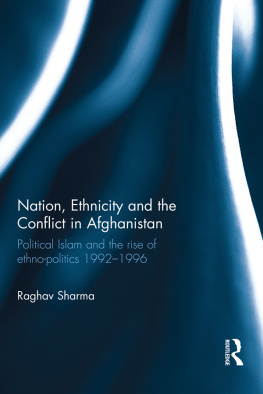Nationalism and Conflict Management
Ethno-national conflict is one of the central issues of modern politics. Despite the emergence of approaches to managing it, from nation-building to territorial autonomy, in recent years, the application of these approaches has been uneven. Old conflicts persist and new ones continually emerge. The authors of this book contend that what is needed to drive forward the theory and practice of ethno-national conflict management is a more nuanced understanding of ethnicity and nationalism.
The book addresses this issue by linking theories of ethnicity and nationalism to theories of conflict management. Its contributors share a common goal of demonstrating that a nuanced understanding of ethnicity and nationalism can beneficially inform conflict management in theory and practice. To do so, they analyse both hot and cold conflict zones, as well as cases that have been important in the development of the most widely-used conflict management models.
The book is aimed at those interested in the theory and practice of ethno-national conflict management as well as the study of ethnicity and nationalism. It is well-suited for undergraduate and advanced research students, experts and policy-makers.
This book was originally published as a special issue of Common-wealth and Comparative Politics.
Eric Taylor Woods recently completed a PhD at the LSE. He is currently finalizing a book on the acknowledgement of injustice, with particular reference to settler-indigenous relations in Canada. He has been a Junior Fellow at Yales Center for Cultural Sociology, a Visiting Researcher at the Toronto School of Theology and was previously the co-Chair of the Association for the Study of Ethnicity and Nationalism.
Robert S. Schertzer recently completed a PhD in Government at the LSE. He has been a visiting researcher at the University of Ottawa, was previously the co-Chair of the Association for the Study of Ethnicity and Nationalism and is currently a Senior Policy Advisor with the Government of Canada in the area of immigration, citizenship and federal-provincial relations.
Eric Kaufmann is Professor of Politics at Birkbeck College, University of London, UK. He recently returned from Harvard, where he was a Fellow at the Belfer Center in the Kennedy School of Government. He has published widely on ethnicity, national identity and religion.
Nationalism and Conflict Management
Edited by
Eric Taylor Woods, Robert S. Schertzer and Eric Kaufmann
First published 2013
by Routledge
2 Park Square, Milton Park, Abingdon, Oxon, OX14 4RN
Simultaneously published in the USA and Canada
by Routledge
711 Third Avenue, New York, NY 10017
Routledge is an imprint of the Taylor & Francis Group, an informa business
2013 Taylor & Francis
This book is a reproduction of Commonwealth and Comparative Politics, vol. 49, issue 2. The Publisher requests to those authors who may be citing this book to state, also, the bibliographical details of the special issue on which the book was based.
All rights reserved. No part of this book may be reprinted or reproduced or utilised in any form or by any electronic, mechanical, or other means, now known or hereafter invented, including photocopying and recording, or in any information storage or retrieval system, without permission in writing from the publishers.
Trademark notice: Product or corporate names may be trademarks or registered trademarks, and are used only for identification and explanation without intent to infringe.
British Library Cataloguing in Publication Data
A catalogue record for this book is available from the British Library
ISBN13: 978-0-415-52045-4
Typeset in Times New Roman
by Taylor & Francis Books
Publishers Note
The publisher would like to make readers aware that the chapters in this book may be referred to as articles as they are identical to the articles published in the special issue. The publisher accepts responsibility for any inconsistencies that may have arisen in the course of preparing this volume for print.
Contents
Eric Taylor Woods, Robert S. Schertzer and Eric Kaufmann
Stefan Wolff
Robert S. Schertzer and Eric Taylor Woods
Elliott Green
David Rampton
Ethno-national conflict and its management
Eric Taylor Woodsa, Robert S. Schertzera* and Eric Kaufmannb
aDepartment of Government, London School of Economics, Houghton Street, London WC2A 2AE, UK; bSchool of Politics and Sociology, Birkbeck College, University of London, Malet Street, London WC1E 7HX, UK
This special issue of Commonwealth & Comparative Politics covers the topic of ethno-national conflict management, with a particular focus on the intersection between this body of work and the interdisciplinary field of ethnicity and nationalism studies. In this introduction, we briefly cover the objectives of the special issue, provide some tools for readers to assess the contributions against these objectives and, finally, sketch what can be expected from the four articles.
The overall objective of this collection of articles is to demonstrate how a nuanced and contextualised understanding of ethnicity and nationality can beneficially inform the theory and practice of ethno-national conflict management. While this may seem a rather benign goal, it builds on an observation that what is often lost in the theory and practice of ethno-national conflict management is that the nature of ethnicity and nationalism has been the object of intense scrutiny and debate. The theory and practice of ethno-national conflict management, therefore, need to account for these debates to be successful. Each of the contributors address this point in some way: from an overview of related fields (Stefan Wolff), to case-specific analysis of the way understandings of ethnicity and nationality play into conflict management approaches (Robert Schertzer and Eric Taylor Woods), to a consideration of the relationship between ethno-national heterogeneity and violence (Elliot Green), to an investigation of the way that a deep and widely held nationalist discourse can inhibit the application of solutions that may work elsewhere (David Rampton).
That the topic of this special issue, ethno-national conflict and its management, warrants treatment goes almost without saying. The oft-cited explosion of ethno-national conflict in the twentieth century seems an inevitable circumstance when one considers the combination of, on the one hand, the rise of nationalism in the modern era and, on the other hand, the problem of fit between nations and states (i.e. the fact that approximately 600 language groups and 5000 ethnic groups are housed in less than 200 states) (Gurr, 1993). Indeed, from the mid-twentieth century, intrastate warfare has made up the vast majority of conflict and has risen significantly with struggles for national self-determination fuelling many of these conflicts (some 87 such conflicts have emerged since the 1950s) (Hewitt, 2008; Quinn, 2008: 34). While the research is not fully conclusive, there is a strong argument that ethno-national heterogeneity (manifesting as a lack of congruence between ethnic, national and state boundaries) significantly increases the probability of violent conflict breaking out (see Montalvo & Reynal-Querol, 2005; Gurr et al., 2008: 9). While, as Laitin points out, ethnic heterogeneity in a state does not predict civil war (Fearon & Laitin, 2003, Laitin, 2007: 915), when ethnic groups are territorialised, the probability of conflict does rise significantly (Toft, 2003; for a review of this issue, see also Kaufmann, forthcoming).












